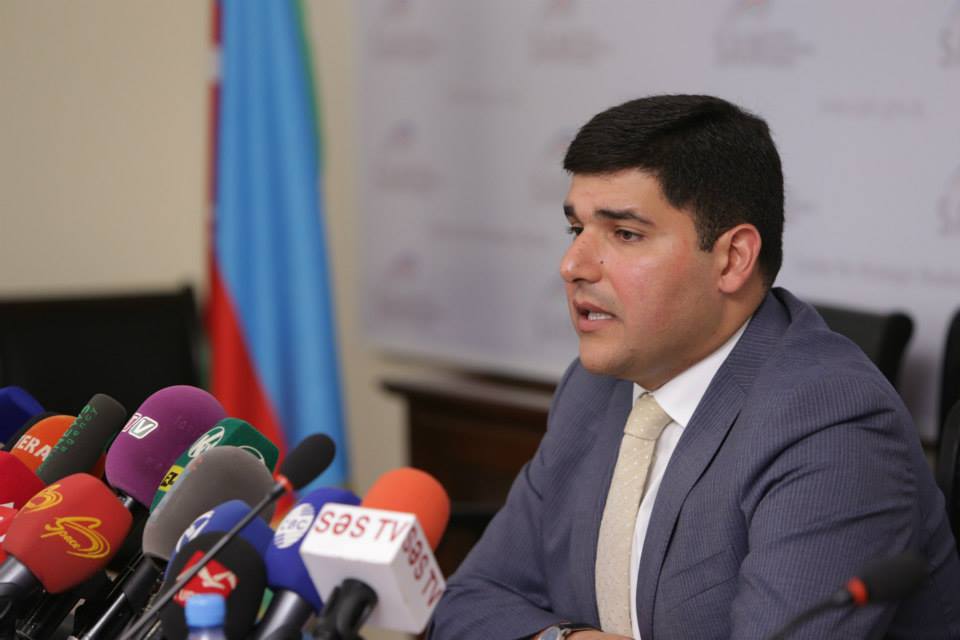Think-thank head urges mediators to take tougher stand on Nagorno-Karabakh

By Sara Rajabova
The co-chair countries of the OSCE Minsk Group are trying to put the responsibility for the delay in the Armenia-Azerbaijan Nagorno-Karabakh conflict on the conflict parties, the head of a leading Azerbaijani think-tank has said.
"In their latest statement the co-chairs of the OSCE Minsk Group demonstrated certain confusion, trying to shift the responsibility for the failure to resolve the Nagorno-Karabakh conflict to the conflict sides," Director of the Center for Strategic Studies (CSS) under the President of Azerbaijan, Farhad Mammadov, told a press conference dedicated to the work of the Center in the first half of 2013.
The CSS director blamed the OSCE Minsk Group for failing to adhere to a specific position on the Armenian-Azerbaijani conflict and not seeking a phased solution to the stalled Nagorno-Karabakh problem in accordance with the principles of international law.
Russia, France and the U.S. have long been working to broker a solution of the Nagorno-Karabakh conflict through the Minsk Group, but their efforts have been largely fruitless so far.
"The main task required for the resolution of the conflict is withdrawal of the invading forces from the occupied Azerbaijani territories. Not seeking a solution to the conflict, the co-chairs in a pause that emerged in the negotiation process over the Nagorno-Karabakh problem blame the conflict parties, taking off from their shoulders all of responsibility," Mammadov said.
He urged the mediators to take a stronger stand and put pressure on Yerevan, calling on the Armenian leaders to display constructivism in the settlement of the long-standing conflict.
"Except Azerbaijan and Turkey no one is trying to counter the policy of aggression pursued by the Armenian leadership. The international community should be more principled on this issue," Mammadov noted.
The Nagorno-Karabakh conflict emerged in 1988 when Armenia made territorial claims against Azerbaijan, its South Caucasus neighbor. The two countries fought a lengthy war that ended with the signing of a fragile ceasefire in 1994. Armenian armed forces have since occupied over 20 percent of Azerbaijan's internationally recognized territory, including Nagorno-Karabakh and seven adjacent regions.
Armenia has not yet implemented the U.N. Security Council's four resolutions on a pullout from the occupied territories.
